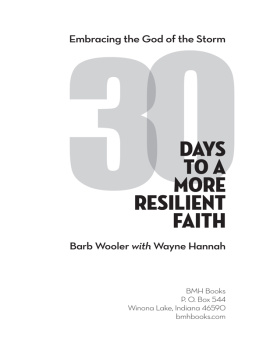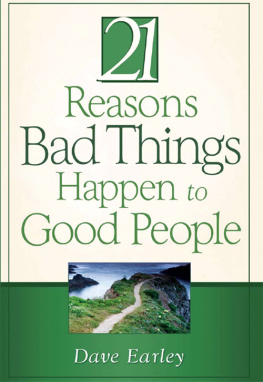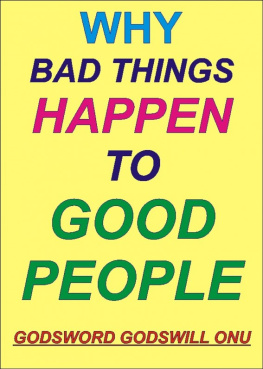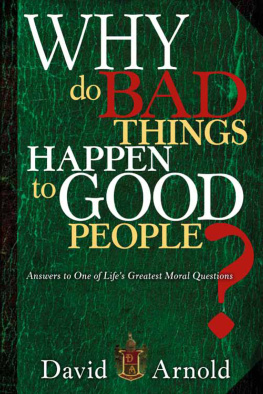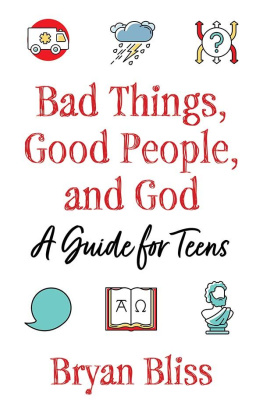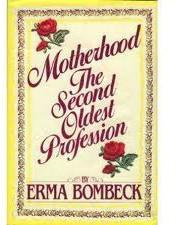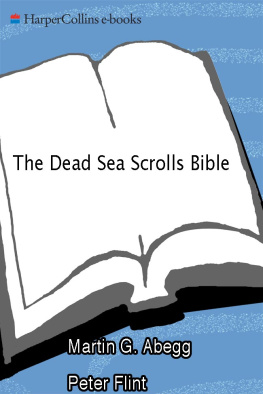Barb Wooler - 30 Days to a More Resilient Faith
Here you can read online Barb Wooler - 30 Days to a More Resilient Faith full text of the book (entire story) in english for free. Download pdf and epub, get meaning, cover and reviews about this ebook. year: 2016, publisher: BMH Books, genre: Religion. Description of the work, (preface) as well as reviews are available. Best literature library LitArk.com created for fans of good reading and offers a wide selection of genres:
Romance novel
Science fiction
Adventure
Detective
Science
History
Home and family
Prose
Art
Politics
Computer
Non-fiction
Religion
Business
Children
Humor
Choose a favorite category and find really read worthwhile books. Enjoy immersion in the world of imagination, feel the emotions of the characters or learn something new for yourself, make an fascinating discovery.
- Book:30 Days to a More Resilient Faith
- Author:
- Publisher:BMH Books
- Genre:
- Year:2016
- Rating:3 / 5
- Favourites:Add to favourites
- Your mark:
- 60
- 1
- 2
- 3
- 4
- 5
30 Days to a More Resilient Faith: summary, description and annotation
We offer to read an annotation, description, summary or preface (depends on what the author of the book "30 Days to a More Resilient Faith" wrote himself). If you haven't found the necessary information about the book — write in the comments, we will try to find it.
30 Days to a More Resilient Faith — read online for free the complete book (whole text) full work
Below is the text of the book, divided by pages. System saving the place of the last page read, allows you to conveniently read the book "30 Days to a More Resilient Faith" online for free, without having to search again every time where you left off. Put a bookmark, and you can go to the page where you finished reading at any time.
Font size:
Interval:
Bookmark:


30 Days to a More Resilient Faith
Embracing the God of the Storm
Copyright Barb Wooler and Wayne Hannah, 2016
ISBN: 978-088469-317-8
REL022000 RELIGION / Devotional
Published by BMH Books, Winona Lake, IN 46590
bmhbooks.com
All Scripture quotations, unless otherwise indicated, are taken from the Holy Bible, New International Version, NIV. Copyright 1973, 1978, 1984, 2011 by Biblica, Inc. Used by permission of Zondervan.
All rights reserved worldwide. www.zondervan.com
The NIV and New International Version are trademarks registered in the United States Patent and Trademark Office by Biblica, Inc.
T HE OLDEST BOOK OF THE B IBLE , J OB, DEALS WITH THE OLDEST question of man: why do seemingly bad things happen to good people? Or put another way, if God is good, why is there suffering?
A thousand generations have asked this question, and their sages have done their best to answer, to make sense of suffering, pain, and evil. Part I includes 30 short readings one for each day of the month drawn from two sources: the Bible and the wisdom of contemporary thinkers. In Part 2 consists of reflections on the role of pain and suffering in life as told by a man who has lived most of his life with a painful disease.
While there are many facets to this complex issue, the conclusion drawn from both the Bible and the sages is this: God is in the midst of crisis and suffering, drawing people to Himself and into His purposes.
CRISIS
a difficult, often dangerous situation or event
SUFFERING
the anguishing impact of crisis on humans
TABLE OF CONTENTS
When times are good, be happy; but when times are bad, consider this: God has made the one as well as the other.
Ecclesiastes 7:14
Read Psalm 119:67; James 1:2-4
W HO IN THEIR RIGHT MINDS WOULD PREFER HARD TIMES TO EASY ? Ask 100 people which they prefer, and 100 would answer the same: give me the GOOD TIMES!
So how does one account for two very strange statements I heard recently? At a small group meeting a woman started her word of praise to God by saying, I thank God for my stroke. Then in May, while in Nepal assisting earthquake victims, I heard a man say, I thank God for the earthquake.
Crazy, right? But consider the fuller context of both.
In the case of the woman, she was thankful for her stroke because it brought her back to the Lord and also was healing her relationship with her estranged son. Though walking is now a bit of a challenge for her body, in a figurative sense, her spirit has a new spring in its step!
The man in Nepal is a pastor, and he has good reason to thank God for the April 25, 2016, 7.8-magnitude earthquake! Though his life became very difficult since that fateful day, he rejoices because the earthquake has brought his neighbors to their church in search of a safe place to sleep. The close contact between believers and unbelievers has resulted in quite a few of his formerly lost neighbors finding Christ!
It makes one wonder if, as Paul and Silas left Philippi, they, too, were thanking God for the earthquake, which resulted in their early release from jail, and more importantly, in the salvation of the jailer and his family!
Such stories are not all that unusual. Many know of people whose lives have been completely turned around by tragedy. I recently heard a story of someone whose difficult temperament was utterly transformed by a cancer diagnosis. Today, she is a joyful person who is grateful to God for all the friends she discovered she has. She never knew such joy B.C. (before cancer).
So, theres obviously another side to suffering, a side we could call an inconvenient truth. This truth is hinted at by the Apostle James in his bizarre statement, Consider it pure joywhenever you face trials of many kinds (James 1:2).
For these 30 days, we will consider the ubiquitous presence of things-going-badly in life. We may reach some surprising conclusions about crises, ourselves, the human experience, and yes, even about God.
Read Genesis 45:5, 46:1-4; Acts 8:1
M Y THOUGHTS ON THE SUBJECT OF CRISIS HAVE EVOLVED A LOT FROM when I was first approached by Encompass World Partners about developing a Crisis Response ministry. To be honest, at that time I wasnt sure crisis ministry was a good match for me. But all that changed when I looked at the role of crisis in the Bible, and I came to a conclusion that left me wildly passionate about serving in crisis.
What conclusion did I reach? I saw that God uses crisis to move people, to change peoples hearts, minds, and even their geography. The crucible of trial awakens; it shakes us from lifes patterns and routines so that we are listening differently; it readies our mind to see afresh. But God uses crisis to move people geographically? Really? Yes, even geographically. Consider these well-known examples.
ISRAEL INTO EGYPT
When God wanted Israel to go into Egypt where they would grow into a great nation, how did He move them there? He sent a severe-famine (crisis) and as food grew scarce, the patriarch Jacob had no choice but to seek provisions in the only land that still had food: Egypt.
His sons were welcomed by the Egyptian official, and returned home with bulging grain sacks. Turns out that this generous official in Pharaohs court was none other than Joseph, their brother!
Sohow did brother Joseph end up in Egypt? It was by his brothers wicked betrayal (crisis) years before, when they treacherously sold him to traveling merchants happening by on their way to Egypt.
Another geographic migration brought on by crisis was 430 years later, when God used ten horrific plagues (crises) to bring Israel, now a vast nation, out of Egypt.
MOBILIZING THE EARLY CHURCH
After Pentecost the church was exploding; Jerusalem was Christianity-Central. Believers were living and fellowshipping together, and their numbers grew daily as they anxiously awaited Jesus return.
But werent they forgetting something? Oh, yeah, the Great Commission. Their town, Jerusalem, was only Phase I! So how would God move the church into Judea, Samaria, and the ends of the earth? Through persecution (crisis) ignited by Stephens martyrdom (crisis).
So we see throughout history that God uses crises famine, betrayal, plagues, persecution to move people into His good and perfect purposes.
Read Acts 9:15-16, 14:22; 2 Corinthians 11:23-29
S AUL OF T ARSUS . T HE BEST OF THE BEST . S INCERE . Z EALOUS . S MART . Highly educated. Passionate in his zeal for God. And dead wrong.
Suffering is central to Sauls story. It starts with his inflicting suffering on the church to destroy it, which ironically, God uses to spread the church. Then after two years, Gods purposes in the persecution having been accomplished, the tables turn and now Saul is on the receiving end of the suffering. But lets go back to the beginning of the story.
GODS CHOSEN VESSEL TO SUFFER
On the road to Damascus, Saul is traveling with documents authorizing him to capture, imprison, and even kill followers of Jesus. Suddenly, a bright light flashes from heaven and strikes him down. A voice from heaven says, Saul, Saul, why are you persecuting Me? It is the voice of Jesus! (Jesus words answer forever the question, Where is Jesus in my pain? a subject for another day.)
Now blind, Sauls posse guides him to the home Jesus had indicated, and for three days he sits in darkness, in stunned silence and awe, wondering how he could have been so wrong! At the end of those three painful days, Saul emerges a man with a completely changed heart.
Next pageFont size:
Interval:
Bookmark:
Similar books «30 Days to a More Resilient Faith»
Look at similar books to 30 Days to a More Resilient Faith. We have selected literature similar in name and meaning in the hope of providing readers with more options to find new, interesting, not yet read works.
Discussion, reviews of the book 30 Days to a More Resilient Faith and just readers' own opinions. Leave your comments, write what you think about the work, its meaning or the main characters. Specify what exactly you liked and what you didn't like, and why you think so.

